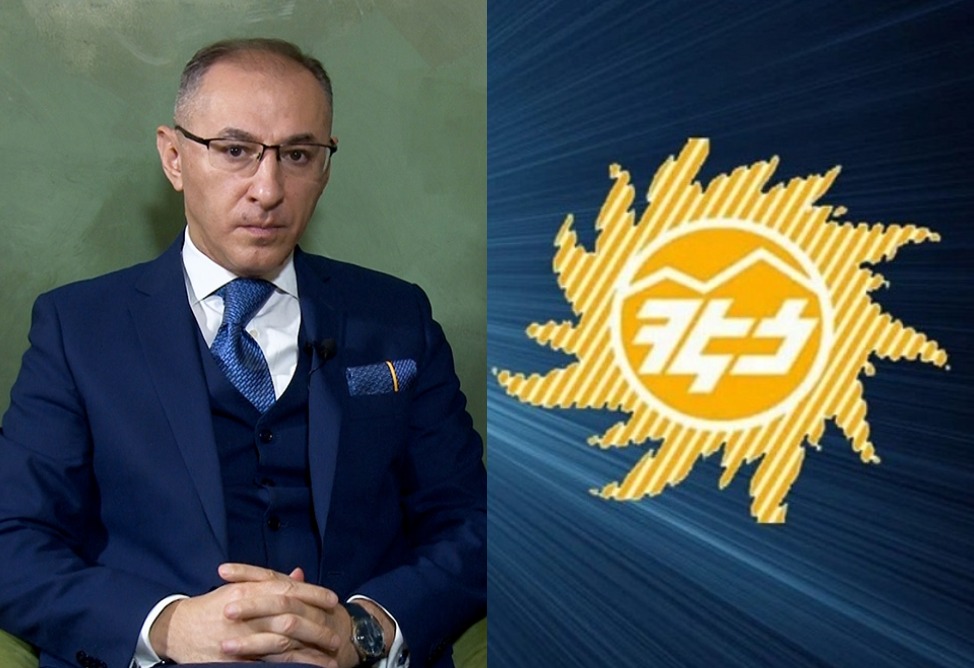No progress seen so far in negotiations over Karabakh – Armenian foreign ministry
18.08.2016,
14:29
No progress is seen so far in negotiations over Karabakh, Shavarsh Kocharyan, Armenian deputy foreign minister, told journalists on Thursday.

YEREVAN, August 18. /ARKA/. No progress is seen so far in negotiations over Karabakh, Shavarsh Kocharyan, Armenian deputy foreign minister, told journalists on Thursday.
Commenting on the rumors going around about possible concessions from the Armenian side, he said that it would be wrong to speak about that while no similar statements come from the Azerbaijani side.
“I have never heard any concession statement from Baku,” he said adding that it would be possible to speak about compromise only after relevant statements from Baku.
“But it’s a different matter that Armenian sides, speaking about the talks, say they are ready for compromise.”
But until Azerbaijan, remaining stuck to its uncompromising stance, it is senseless to talk about concessions.
Kocharyan is quoted by Novosti-Armenia as saying that the Armenian side has particular goals – not to let Nagorno-Karabakh Republic be a part of Azerbaijan and to ensure security to Karabakh state and people.
Speaking about the probability of a trilateral meeting between Armenian, Russian and Azerbaijani president, Kocharyan stressed that Armenia has never avoided such meetings, if they have given grounds for expecting some results, but no progress is seen so far.
“The second important factor is implementation of arrangements made in Vienna and St. Petersburg,” he said adding that Azerbaijan is always torpedoing any arrangements.
Commenting of Russian President Vladimir Putin’s statement that there can be no winners and losers in settlement of the conflict, Kocharyan said that this is a diplomatic cliché.
Karabakh conflict broke out in 1988 when Karabakh, mainly populated by Armenians, declared its independence from Azerbaijan.
On December 10, 1991, a few days after the collapse of the Soviet Union, a referendum took place in Nagorno-Karabakh, and the majority of the population (99.89%) voted for secession from Azerbaijan.
Afterwards, large-scale military operations began. As a result, Azerbaijan lost control over Nagorno-Karabakh and the seven regions adjacent to it.
Some 30,000 people were killed in this war and about one million people fled their homes.
On May 12, 1994, the Bishkek cease-fire agreement put an end to the military operations.
Тalks brokered by OSCE Minsk Group are being held over peaceful settlement of the conflict. The group is co-chaired by USA, Russia and France. --0---
Commenting on the rumors going around about possible concessions from the Armenian side, he said that it would be wrong to speak about that while no similar statements come from the Azerbaijani side.
“I have never heard any concession statement from Baku,” he said adding that it would be possible to speak about compromise only after relevant statements from Baku.
“But it’s a different matter that Armenian sides, speaking about the talks, say they are ready for compromise.”
But until Azerbaijan, remaining stuck to its uncompromising stance, it is senseless to talk about concessions.
Kocharyan is quoted by Novosti-Armenia as saying that the Armenian side has particular goals – not to let Nagorno-Karabakh Republic be a part of Azerbaijan and to ensure security to Karabakh state and people.
Speaking about the probability of a trilateral meeting between Armenian, Russian and Azerbaijani president, Kocharyan stressed that Armenia has never avoided such meetings, if they have given grounds for expecting some results, but no progress is seen so far.
“The second important factor is implementation of arrangements made in Vienna and St. Petersburg,” he said adding that Azerbaijan is always torpedoing any arrangements.
Commenting of Russian President Vladimir Putin’s statement that there can be no winners and losers in settlement of the conflict, Kocharyan said that this is a diplomatic cliché.
Karabakh conflict broke out in 1988 when Karabakh, mainly populated by Armenians, declared its independence from Azerbaijan.
On December 10, 1991, a few days after the collapse of the Soviet Union, a referendum took place in Nagorno-Karabakh, and the majority of the population (99.89%) voted for secession from Azerbaijan.
Afterwards, large-scale military operations began. As a result, Azerbaijan lost control over Nagorno-Karabakh and the seven regions adjacent to it.
Some 30,000 people were killed in this war and about one million people fled their homes.
On May 12, 1994, the Bishkek cease-fire agreement put an end to the military operations.
Тalks brokered by OSCE Minsk Group are being held over peaceful settlement of the conflict. The group is co-chaired by USA, Russia and France. --0---



